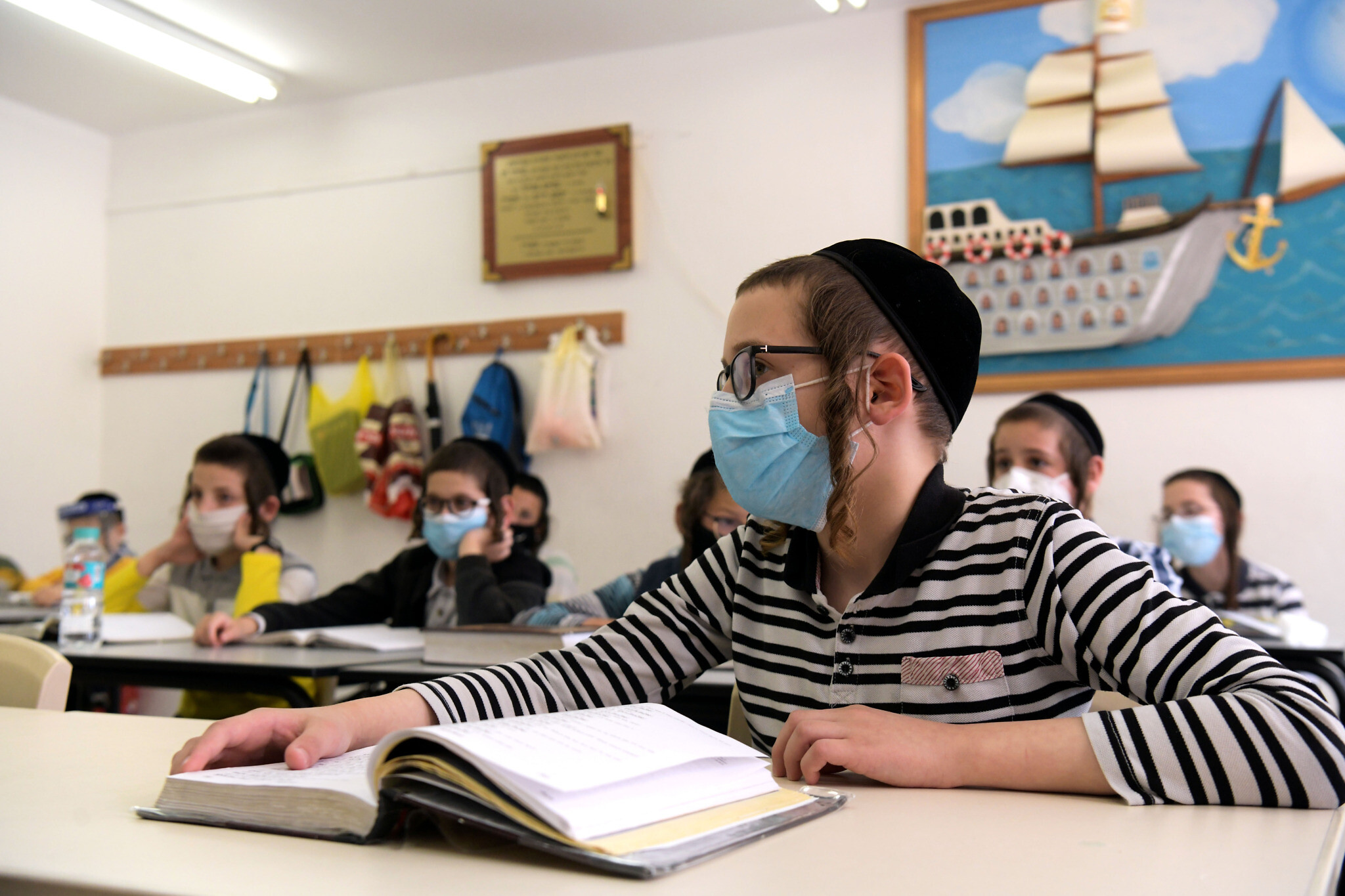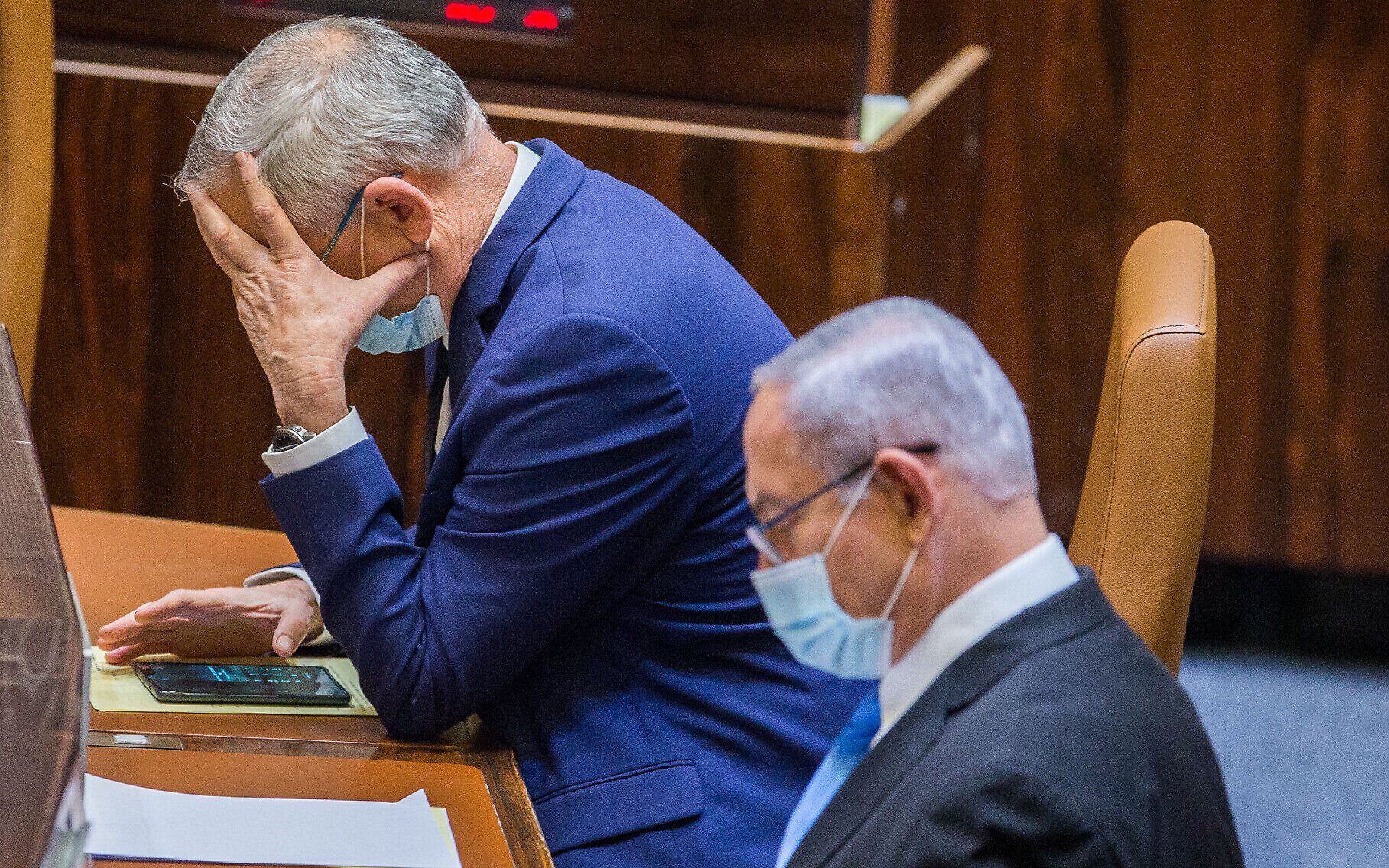The legislation to grant funding to schools to deal with the pandemic did not reach a planned Knesset vote on Wednesday night, after the coalition apparently failed to gather enough lawmakers to support the bill ahead of a weeklong summer recess.
The vote will now be delayed until after the school year begins on September 1, since the Knesset began its vacation on Wednesday night.
“There was no majority and therefore it won’t come up [for a vote],” an official told the Knesset channel.
The Finance Committee previously approved the legislation, which amounts to NIS 1.75 billion ($515 million) for schools.
Opposition leader Yair Lapid of the Yesh Atid faction said, “This is simply unbelievable. This government simply does not see the citizens at all. The only thing that interests them is politics. This is a disgrace.”
A senior member of the coalition fumed at coalition whip Miki Zohar of Likud.
“The coalition management is failing. It is not being managed like it needs to be,” the official, identified as a member of the right-wing bloc, told the Knesset channel.
Israel has been operating without a 2020 budget, meaning ministries must use 2019 budget numbers, which do not cover the pandemic, even as schools and other institutions grapple with the expenses of coping with the coronavirus.

Haredi children from the Bnei Moshe Kretchnif ultra-Orthodox school wear face masks at their school in the city of Rehovot, on May 24, 2020. (Yossi Zeliger/Flash90)
Earlier this week, Education Minister Yoav Gallant rolled out a new education plan for opening schools, which will add some NIS 4.2 billion ($1.24 billion) to the education budget annually, a roughly 7 percent increase from the ministry’s NIS 60 billion ($18 billion) annual budget.
Gallant did not specify where the extra billions would come from.
The governing coalition narrowly avoided a collapse on Monday night when it passed legislation, a couple of hours before a midnight deadline, that gives the government until December 23 to pass a state budget.
The Monday night breakthrough happened after Netanyahu and Blue and White party chief Benny Gantz both said their parties would vote in favor of the delay, after a day of their respective Likud and Blue and White parties hurling accusations at each other. The two parties continued to trade blows on Wednesday.
Though the crisis was ostensibly about the state budget, the true bones of contention appeared to be the issue of senior law-enforcement appointments and the balance of power in the unity coalition.
Though elections were averted this week, many analysts believe the government is still on life support and will not pass a budget or survive beyond the next deadline.

Defense Minister Benny Gantz (left) and Prime Minister Benjamin Netanyahu seen during a vote to stave off a budget deadline and thus avert elections, at the Knesset on August 24, 2020.(Oren Ben Hakoon/POOL)
Gallant, Health Minister Yuli Edelstein and the government’s coronavirus czar Ronni Gamzu made the decision to open schools at the start of September on Monday.
Classes will be held according to the Education Ministry’s “Safe Learning” plan, which was developed in response to the pandemic and will see smaller class sizes in the younger grades and an emphasis on distance learning from grades 5 through 12.
Officials are looking into the possibility of delaying the openings of high schools in cities with high infection rates until October, after the Jewish holidays, the Education Ministry said. That decision would affect 10th- through 12th-graders.
The Education Ministry has faced criticism over concerns that the education system was unprepared for the new restrictions imposed by the pandemic. The swift reopening of school in May has been blamed for the resurgence of the virus, which had nearly disappeared while schools were shut.
The number of coronavirus deaths in Israel rose to 875 on Wednesday evening as the Health Ministry updated its COVID-19 figures, which also showed a jump of 1,809 cases in the previous 24 hours.
Related posts:
Views: 0
 RSS Feed
RSS Feed

















 August 27th, 2020
August 27th, 2020  Awake Goy
Awake Goy  Posted in
Posted in  Tags:
Tags: 
















